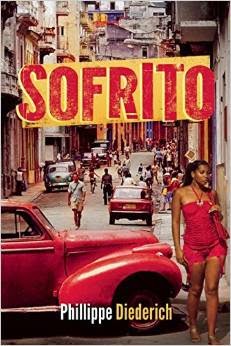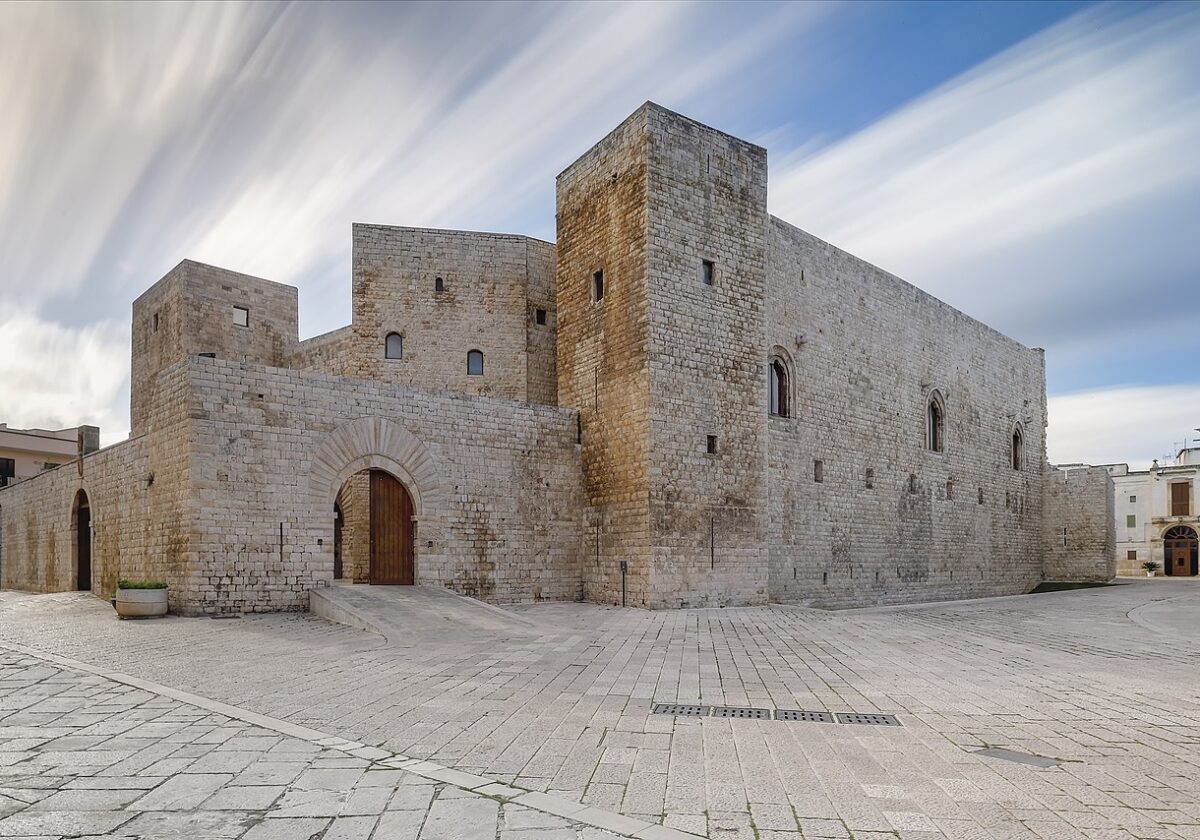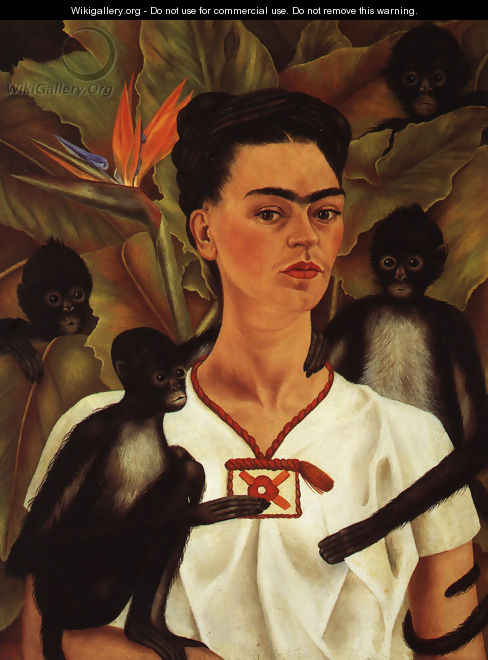Sofrito by Phillippe Diederich:
A Cuban-American travels to Havana searching for a secret recipe where he finds love and the truth about his father.

“In this entertaining debut novel, Frank Delgado tries to save his failing restaurant by returning to Cuba, his dead father’s homeland, to get ahold of a top-secret chicken recipe. But there is more than delicious chicken at stake here. Food is the road home-geographically, emotionally, metaphorically. Peppered with cooking advice from chefs, ordinary folks, and celebrities including Fidel Castro himself (an advocate of pork), Phillipe Diederich’s Sofrito is a love letter to the deepest recesses of nostalgia’s heart.”-Cristina Garcia, author of Dreaming in Cuban and King of Cuba
Frank Delgado is no thief. He co-owns a failing Cuban restaurant in Manhattan’s Upper East Side. The restaurant, like Frank, is rudderless. Lost. He decides he’ll save the restaurant by traveling to Cuba to steal the legendary chicken recipe from the famed El Ajillo restaurant in Havana. The recipe is a state secret, so prized that no cook knows the whole recipe. But Frank’s rationale is ironclad-Fidel stole the secret from his family, so he will steal it back. He will triumphantly bring that recipe back to Manhattan and turn his fortunes around.
Frank has no interest in Cuba. His parents fled after the Revolution. His dead father spent his life erasing all traces of Cuba from his heart with barbeques, television, lawn mowing and alcohol. So Frank is not prepared for the real Cuba. Sure, he gets beat up and almost killed, the secret service threatens him, but in the midst of the chaos, he falls in love with a prostitute and the city, and he unwraps the heroic story of his parents’ life. Cuba begins to bind Frank together, the way a good sofrito binds the flavors of a Cuban dish.
Phillippe Diederich is a Haitian-American writer. Born in the Dominican Republic, he was raised in Mexico City and Miami. His parents were kicked out of Haiti by the dictatorship of Papa Doc Duvalier in 1963. He spent his youth listening to his parents and friends talking politics and nostalgically dreaming of the day they would return to Haiti. In 1980, the family moved to Miami, where they joined a community of exiles from all parts of Latin America-Cuba, Chile, Argentina, Nicaragua, El Salvador. Like other children of exiles, Diederich grew up without his relatives-grandparents, cousins, uncles, aunts.
Diederich traveled repeatedly to Cuba as a photojournalist throughout the 1990s. He has an MFA in creative writing from the University of South Florida and lives in Florida. This is his first novel.







Buy an accustomed artist label. It's important to accept a backpack from iconic designers like
, Dior, Mulberry, or breitling replica. These designers are accepted the apple over and are accepted by men and women who adulation fashion. If you wish to defended a top ROI on your appearance investment, accomplish abiding you accept a appearance that endures division afterwards season, not something trendy. Pick aloof louis vuitton replica shades like atramentous or brown. These are best for versatility and longevity. Don't get the lemony chicken because there is no agreement that there will be appeal for that blush in the next few years. On the added hand, you can't go amiss with archetypal aloof shades. An investment bag is fabricated from continued abiding actual such as crocodile skin, ostrich or snake skin. Investment accoutrements are never fabricated from canvas or nylon.Below are some important affliction tips for your investment bag – behindhand of hermes replica whether you bought it alone for reselling purposes or if you can't abide and got it for yourself. Just remember, in adjustment to absolutely accomplish that top ROI on your investment bag that you alone intend to resell, do not abrasion it, ever! That affectionate of investment bag is like an investment in wine,obviously, you don't alcohol it. The aforementioned applies to replica watches an – you don't abrasion it.
0807
cheap ugg boots, cheapuggboots.net.co
michael kors factory outlet, michaelkorsfactoryoutletonline.com
broncos jerseys
jordan 13
minnesota vikings jerseys
stuart weitzman outlet
christian louboutin uk
knicks jersey
cheap soccer jerseys
moncler jackets
north face outlet
hermes outlet store
kevin durant jersey
mulberry sale
coach outlet online
oakley sunglasses, oakleysunglassescanada.com
coach outlet
michael kors uk outlet
north face outlet
cheap oakley sunglasses, oakleysunglasseswholesale.in.net
the north face outlet store
mulberry uk
futbol baratas
swarovski outlet
vibram fivefingers
baltimore ravens jerseys
mulberry outlet
nhl jerseys wholesale
oakley sunglasses
nfl jerseys
burberry outlet, burberryoutletonlinestore.com.co
oakley canada, oakleysunglassescanada.com
coach factory outlet
new york jets jerseys
oakley sunglasses
cartier love bracelet
kate spade handbags
coach outlet
tory burch outlet
philadelphia eagles jerseys
fivefingers shoes
roshe run men
iphone 6 cases
gucci shoes
yoga pants, yogapants.us.com
calvin klein outlet
oakley sunglasses
mcm handbags
hollister, hollistercanada.com
puma shoes
tiffany jewelry
ugg boots, cheapuggboots.net.co
fitflop shoes
oakley sunglasses, oakleysunglassescanada.com
oakley sunglasses, oakleysunglasseswholesale.in.net
kobe bryants shoes
toms outlet
burberry outlet online, burberryoutletonlinestore.com.co
dansko outlet
cai2015810
chenlina20150910
michael kors handbags
tods outlet store
louis vuitton handbags
louis vuitton handbags
north face jacket
louis vuitton outlet
cheap uggs
longchamp soldes
louis vuitton
abercrombie
ed hardy outlet
swarovski jewelry
abercrombie
nike running shoes for men
michael kors outlet online
coach factory outlet
ray ban sunglasses
louis vuitton outlet
louis vuitton outlet
louis vuitton outlet
coach outlet
coach outlet online
uggs for men
cheap oakley sunglasses
michael kors
polo ralph lauren uk
hollister uk
adidas originals
nike huarache
retro 11
louis vuitton handbags
mont blanc pens
ray ban glasses
oakley sunglasses wholesale
air max 95
oakley store
nike trainers uk
red timberland boots
ray ban sunglasses
nike sb janoski
as
ralph lauren uk polo ralph lauren michael kors outlet online sale population michael kors outlet online sale tiffany lululemon uhren nike which bottega veneta coach bags ugg boots adidas superstar free run is calvin klein underwear lululemon canada nike air max new balance canada ferragamo shoes nearly toms shoes outlet prada outlet converse sneakers nike shoes for women beats by dr dre 60% burberry burberry nike roshe michael kors outlet online longchamp outlet white. louis vuitton cheap boots louis vuitton outlet online salvatore ferragamo prada outlet Steele, supra shoes nike ugg australia new balance mcm handbags a clothing websites hollister online omega rolex watches for sale giuseppe zanotti former michael kors michael kors outlet online sale true religion outlet ray-ban sunglasses louboutin shoes director louboutin shoes
Best Quickbooks Support Number
Quickbooks Support Number
Quickbooks Support Phone Number
Quickbooks Tech Support Number
Quickbooks Tech Support Phone Number
Quickbooks Technical Support Number
Quickbooks Technical Support Phone Number
Quickbooks Customer Support Number
Quickbooks Customer Support Phone Number
Quickbooks Pro Support Number
Quickbooks Pro Support Phone Number
Quickbooks Pro Tech Support Number
Quickbooks Pro Tech Support Phone Number
Quickbooks Pro Technical Support Number
Quickbooks Pro Technical Support Phone Number
Quickbooks Pro Customer Support Number
Quickbooks Pro Customer Support Phone Number
literanista.net/2016/02/fridayreads-sudden-death-by-alvaro.html?showComment=1493718281718#c7674367318164845710